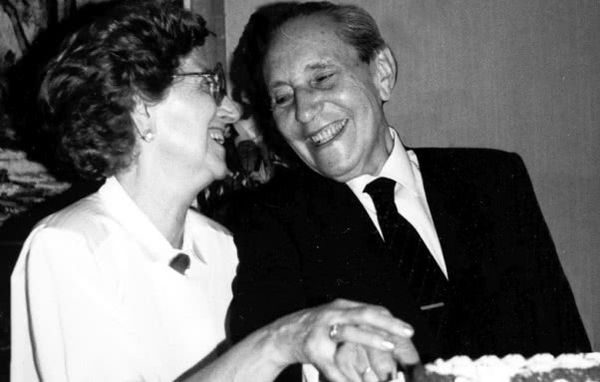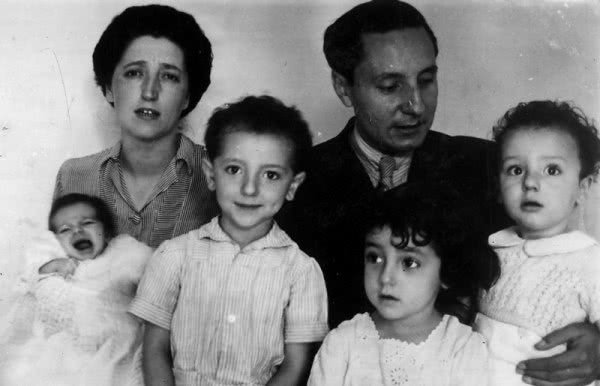By Mary Ann Glendon
Foreword from Our Lives in His Hands
According to the famous opening line of Anna Karenina, happy families are all alike while every unhappy family is unhappy in its own way. Tolstoy’s lack of interest in ordinary family life seems to be widely shared among authors of literary classics. Even romantic novels usually come to an end when the couple marries, leaving the reader to wonder how “happily ever after” might have unfolded as the couple began to confront the joys and sorrows that every family experiences. In Olga Marlin’s true story of the Alvira family, by contrast, the charming romance of Tomàs and Paquita is only the beginning of an account of how this remarkable pair lived the vocation of marriage in such an exemplary way that the cause for their beatification is currently pending in Rome.
This story, set in 20th century Spain, could not be more timely, appearing as it does at a moment when the institution of marriage is under exceptional stress. The deterioration of cultural supports for marriage has led to the disintegration of an entire network of ties that traditionally bound people and groups together. Each frayed connection increases the strain on the others: from the relationship between husbands and wives, to the bonds between parents and children, to the mediating groups of civil society, to religious affiliation, to our sense of connection with the past, and our sense of stewardship for future generations. With more and more young people giving up on marriage as a lifelong commitment to a communion of love, fidelity and fruitfulness, the costs to individuals and society are mounting.
The family grounded in marriage has long served as the first and principal school where we learn the habits and skills of cooperative living. For most of us, the family provides the principal setting in which we can strive to realize our full capacity for virtue and charity. Family life teaches us to manage the inevitable tensions between self-interest and care for others, between reason and passion, between immediate desires and long-range goals.
Not without reason have Church leaders insisted on the importance of supporting the marriage-based family and the right of children to grow up with a father and a mother capable of creating a suitable environment for the children’s development and emotional maturity. Addressing World Youth Day in 2013, Pope Francis exhorted young people to dare to be countercultural. He said: “Today, there are those who say that marriage is out of fashion. . . . They say that it is not worth making a life-long commitment, making a definitive decision, ‘forever’, because we do not know what tomorrow will bring. I ask you, instead, to be revolutionaries , I ask you to swim against the tide; yes, I am asking you to rebel against this culture that sees everything as temporary and that ultimately believes you are incapable of responsibility, that believes you are incapable of true love.”
The same cultural shifts that threaten the institution of marriage, however, have made it increasingly difficult for young men and women to find reliable guidance on how to answer the call to holiness through family life in the sacrament of marriage. All too many of their parents were too caught up in the cultural revolution of the late 20th century to provide a helpful example. And even if a young couple were to search for models of married life in the lives of the saints, they would find that—apart from the special case of Mary and Joseph—relatively few saints were married, and most of those were martyrs or persons who devoted themselves to religious life after their spouse’s death. Only recently, in 2015, did the parents of Saint Thérèse of Lisieux become the first couple to be canonized together as husband and wife.

Given the scarcity of accounts of how a real-life couple comes to understand marriage as a path to holiness that “transcends the feelings and momentary needs of the couple” (Evangelii Gaudium, 66), Dr. Marlin has done a real service by telling the story of Tomàs and Paquita. Her narrative opens with the romantic tale of a young love that had to endure separations and dangers in the terrible years of civil war and religious persecution that wracked Spain from 1936 to 1939. But the heart of the story concerns the family that began when the couple married in 1939, thirteen years after their first meeting. The story of the Alviras and their nine children is a celebration of complementarity in a faith-filled, loving household where work and family were closely intertwined. In recounting the growth of Tomàs and Paquita’s understanding of marriage as a supernatural calling, Dr. Marlin emphasizes the importance of the couple’s friendship with Saint Jose Maria Escriva, the founder of Opus Dei, of which Tomàs and Paquita were the first married members. As Marlin explains, the couple was deeply influenced by the spirit of Opus Dei—the encouragement to give an ongoing, joyful “yes” to the call to live one’s everyday life with Christian perfection; to love the world as the gift of God and the place for meeting Christ; to seek sanctity in little things; and to see an invitation from God in the ordinary details of daily life.
Our Life In His Hands should serve as a source of inspiration not only for men and women pursuing the vocation of marriage, but for all who support the institution of marriage as a natural and fundamental good for individuals, families, communities and societies.
Mary Ann Glendon, J.D., LL.M.is the Learned Hand Professor of Law at Harvard Law School and a former United States Ambassador to the Holy See. She teaches and writes on bioethics, comparative constitutional law, property, and human rights in international law. She was the Vatican representative to the international 1995 Beijing Conference on Women, was appointed by President Bush to the President's Council on Bioethics, and in 2013 was named a member of the Pontifical Commission of inquiry for the Institute for Works of Religion (IOR) by Pope Francis.
"The Match Made on a Train" (excerpt from Our Lives in His Hands)
